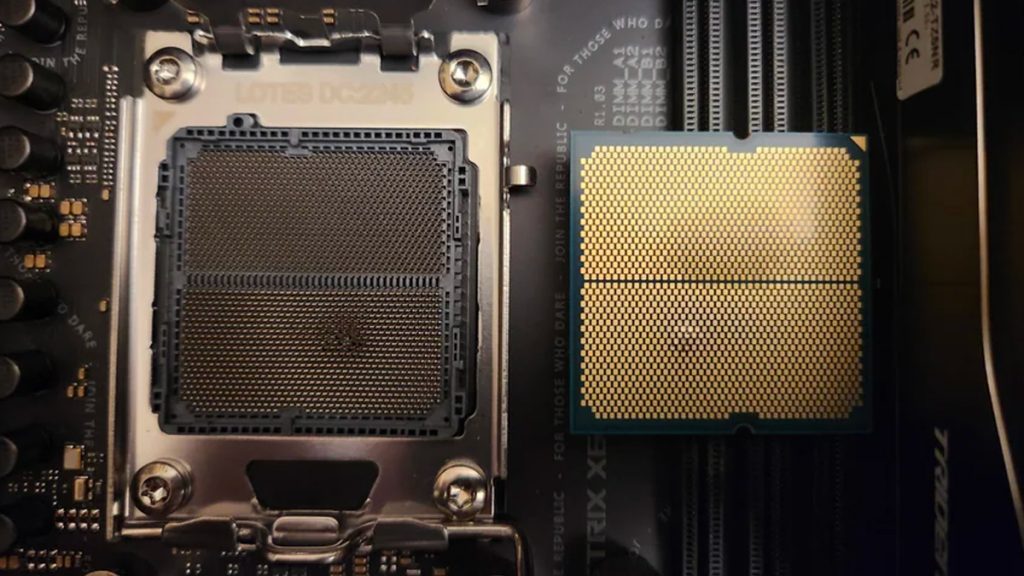If you’ve got an AMD Ryzen 7000 series processor in your gaming PC, you might have been a little worried in the last week or so following news that these chips were failing while in the motherboard and in use, with the issue apparently causing the chip to fry itself. While that’s certainly unfortunate for AMD users, the good news is that AMD has now issued a fix that will hopefully prevent these processors failing.
According to AMD, they have found the root cause of the issue, and have distributed a new AMD Generic Encapsulated Software Architecture (AGESA) that should put new measures in place on certain power rails on AM5 motherboards. This should then prevent the processor from operating beyond its specification limits, which includes a 1.3V cap on the SoC voltage. The new AGESA update is necessary as that allows their motherboard partners to update their own BIOS firmwares for their motherboards.

The issue came to light a week ago when user Speedrookie on the AMD subreddit posted photos showing his dead AMD Ryzen 7 7800X3D, with a burn spot on the motherboard socket and the chip itself physically deformed and bulging out, likely due to the heat produced. It was later revealed that this kind of catastrophic failure can occur on both the gaming-focused Ryzen 7000X3D processors along with the standard lineup of Ryzen 7000 and 7000X chips.
It turns out that the issue was caused by the motherboard sending way too much SoC voltage to the chip, causing the processor’s thermal monitoring system to fail, which in turn tricks itself into thinking it needs more power until ultimately failing while in use. This can occur either from a user manually dialling up the voltage or the motherboard firmware doing so when an EXPO memory overclocking profile kicks in.
In the meantime, you should immediately check your motherboard model number and then check if there’s any BIOS update for it available from the manufacturer’s website. AMD says that they’re expecting all of their board partners to issue out BIOS updates within the next few days, so if you don’t see one yet you should get it by next week. If your own PC has been affected by this issue though, you should get in touch with AMD customer support for more help.








